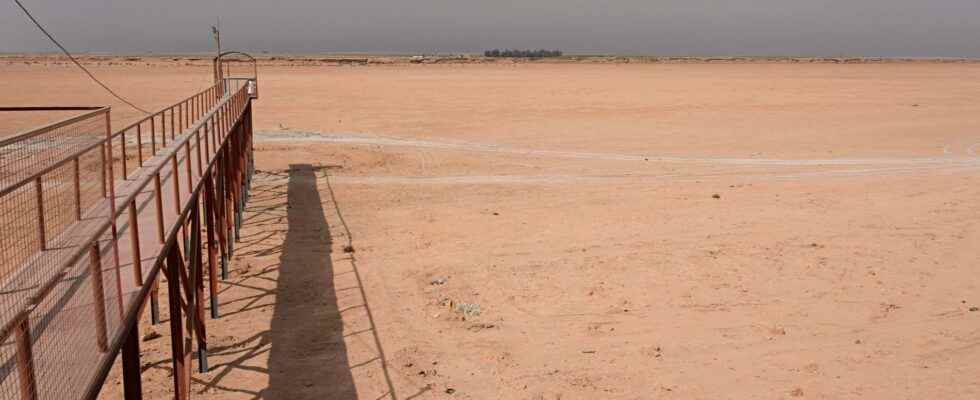Hussam al-Aqouli remembers exactly where his daughters dipped their feet in the clear water. Two years later, he stands in the same place with the dried-out cracked lake bottom under his feet.
Lake Sawa is the latest to dry up in Iraq’s water shortage.
– This lake was known as the “pearl of the south”, says Hussam al-Aqouli, who lives in the nearby town of Samawa.
– Now it’s our tragedy.
Water shortages are widespread in Iraq. Climate change has led to reduced rainfall and recurring droughts. The pressure on water resources is heavy from industry and farmers and it is the poorest who are worst affected.
Lake Sawa is located in the province of al-Muthanna, where the number living below the poverty line is three times higher than the national average. The landscape is dominated by the desert, with a narrow strip of farmland along the Euphrates in the north.
Blessed water
Lake Sawa has neither inflow nor outflow and where the water comes from has puzzled experts for centuries and given rise to folk tales and religious stories. Thousands of pilgrims used to visit the site each year to bathe in the water that was considered blessed.
Locals say the dried-up lake heralds the return of Imam al-Mahdi, a descendant of the Prophet and a revered Shiite Islamist.
– This means that the end is near, says Hussam al-Aqouli.
According to experts, the lake has not dried out for good, but the fact that it has now is a worrying consequence of the thousands of illegal wells that have been dug for cement factories and industrial areas. At the beginning of June, the water began to seep back when the farmers, finished with this year’s harvest, stopped diverting water.
Rubbat ecosystem
Forcing illegal wells to close and other protection measures could have reversed the trend, according to Aoun Diab, an adviser to the Department of Water Resources. But they would have clashed with the economic interests of local authorities.
Instead, the ecosystem has been disturbed. Fish that were food for sensitive migratory birds have become extinct. When the fish are gone, the birds have to change their route or go under.
The future looks bleak. According to the Ministry of Water Resources, water levels have fallen 60 percent this year compared to last year.
Lake Sawa is a case study for climate change in Iraq, said Laith Ali al-Obeidi, a climate activist in southern Iraq.
– This is the future.
As a child, Hussam al-Aqouli used to visit the lake with his family. He hoped to do the same with his own family. Instead, he spends his days writing long posts on social media urging Iraqis to act. It often feels hopeless.
He casts one last glance before leaving the dried-up lake.
– Believe me, it used to be so beautiful.
Facts
Lake Sawasjön
Lake Sawa is located south of Baghdad and is known for its high salinity. It is about 4.5 kilometers long and 1.8 kilometers wide.
The lake is mentioned in old religious texts. It is said that the lake was created by a miracle on the day the Prophet Muhammad was born.
In 2014, Sawasjön was designated a Ramsar site. The Ramsar Convention is an international convention for the protection of wetlands that are particularly important for bird life. Today, the convention also takes into account fish and insect life.
Read more
